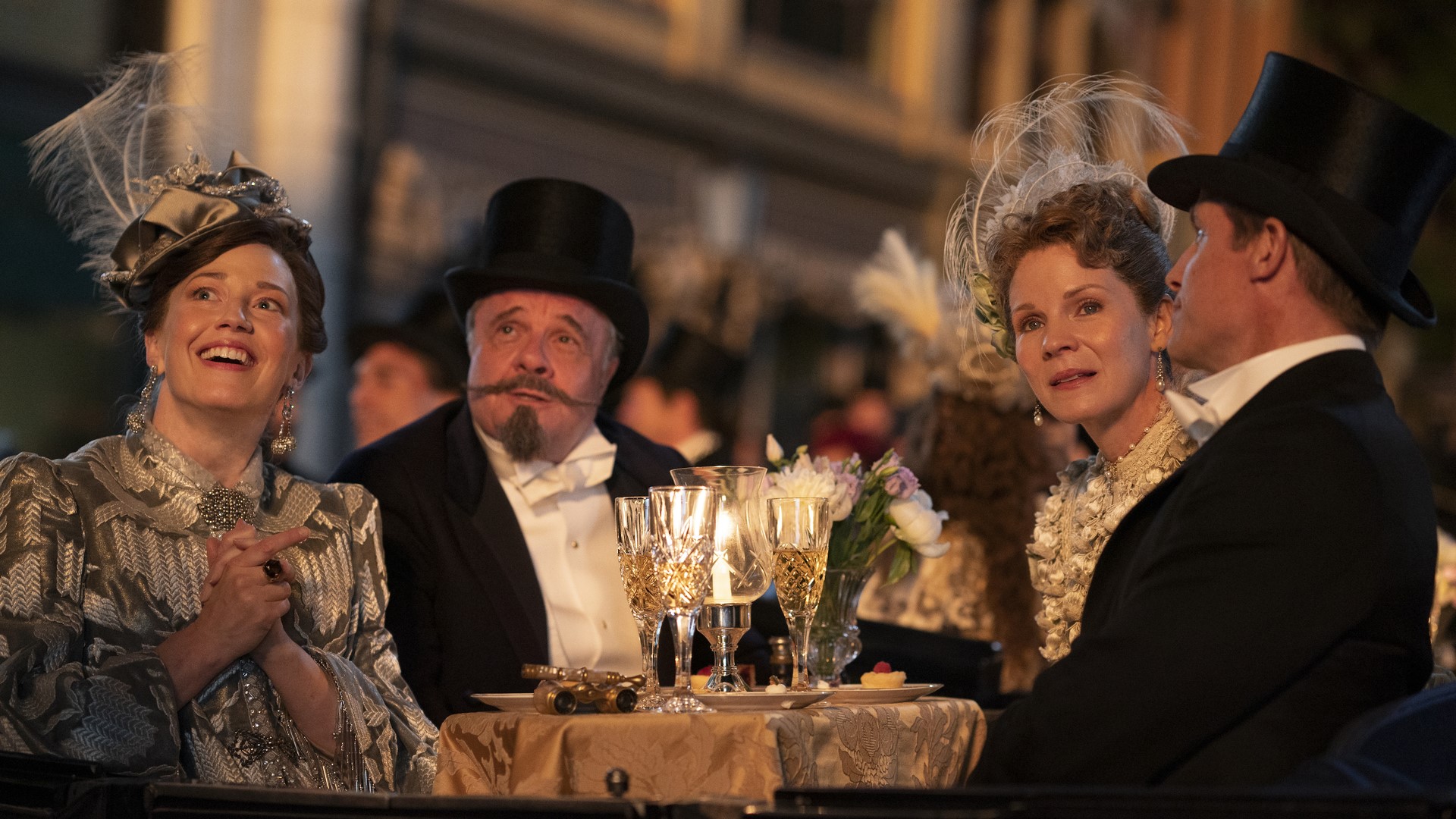What to Watch Verdict
The Gilded Age has settled into a familiar pattern, which offers some striking, if not cyclical storylines.
Pros
- +
The Thomas Edison spectacle and the mention of other important pioneers like Lewis Howard Latimer
- +
Turner isn't subtle but she sure was a fun villain
- +
Oscar's sunglasses
- +
Mrs. Chamberlain's eye for art, such as the Degas statue
Cons
- -
The Marian/Mr. Raikes romance is still trying to be exciting and failing
- -
The Russells pretty much have the same fight as they did last week
Note: this post contains spoilers for The Gilded Age season 1 episode 7, "Irresistible Change."
Societal and industrial change is at the heart of The Gilded Age, which sets a lavish stage for conflict. The Russells are making progress in their battle to win over the established gatekeepers, but a court case looms large. Not to mention the scheming employees who are trying to undermine these efforts. "Irresistible Change" shows the HBO series has settled into a familiar rhythm.
Each episode offers up a history lesson of sorts that will no doubt lead to spikes in searches for the names who are either mentioned or appear alongside the fictional characters. Some of these are more obscure, but a figure like Thomas Edison is recognizable to most. The American inventor is central to the grand event that has got the city abuzz — quite literally.
Picnics in carriages are called for in order to witness the "taming electricity" demonstration that Edison has in store for New York City. On September 4, 1882, Edison lit up Wall Street and in this portrayal, George Russell (Morgan Spector) has been invited to stand on stage next to the inventor. Bertha (Carrie Coon) is giddy about this opportunity and her now overflowing calendar. Yes, the train crash scandal casts its shadow but she is not letting this ruin her spell of good fortune.
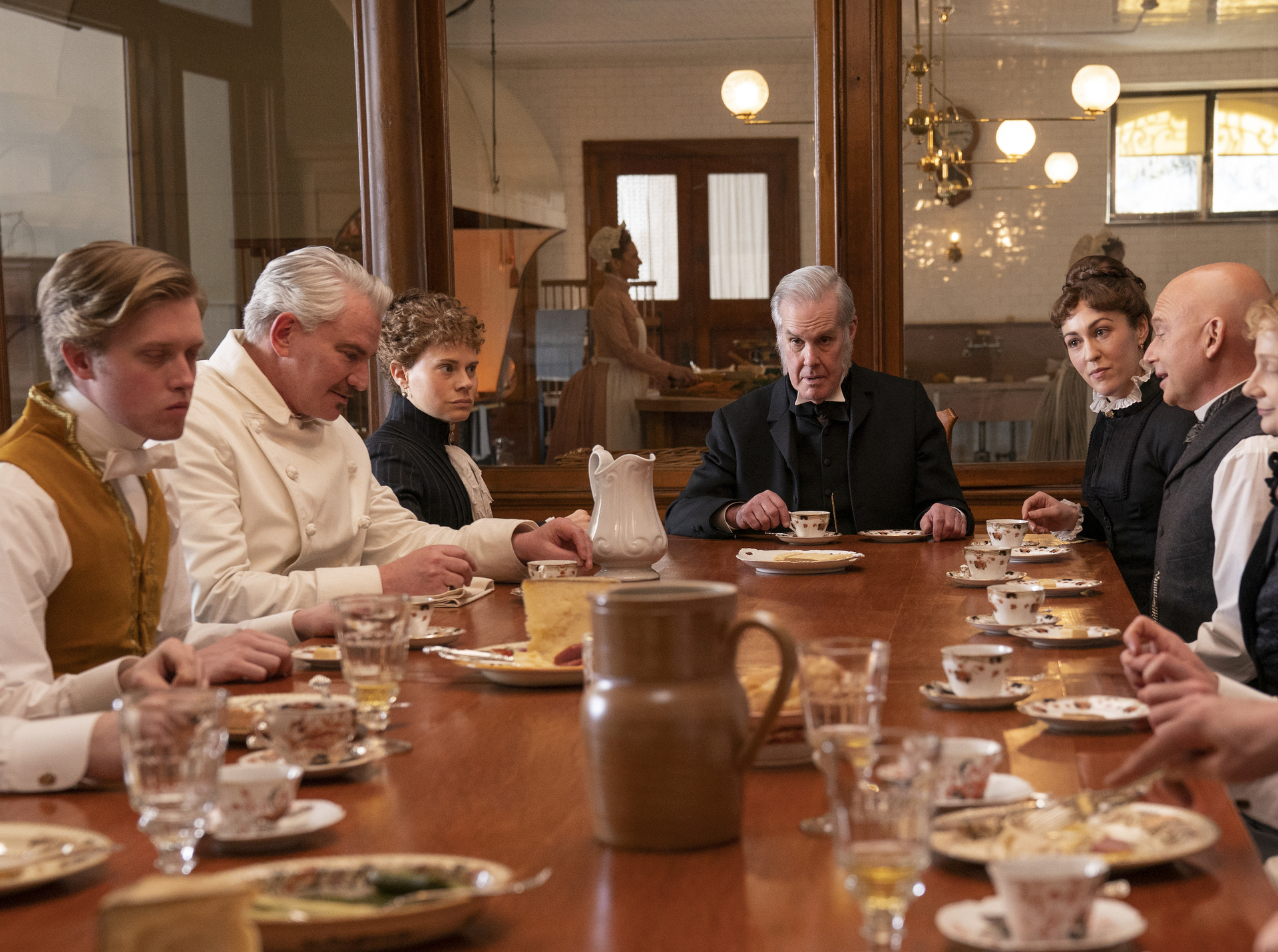
Last week the couple quarreled when Bertha whined about the bad timing and how it might impact her ambitions. This argument is repeated in "Irresistible Change" when they discuss the potential court case, as she "can’t afford a scandal." Once again, George is unsympathetic to her concerns and is furious when she says, “But I have already settled a date with Mr. McCallister.” The date in question is Gladys’ (Taissa Farmiga) long-awaited debutante ball. Surprisingly, George is more concerned with a potential prison sentence than a party.
The issue with this sparring match is the couple is hitting the same beats as last week: an argument before coming back together as a solid unit. Bertha puts her ladder-climbing first and then realizes the error of her ways. The Gilded Age has a habit of circling the same storylines — the "Irresistible Change" of the title does not refer to the plot. Bertha shows her support by not canceling her plans as an act of confidence in her husband’s innocence. "We won’t be defeated, George," she says before heading off to the Edison event wearing a hat that already looks like it is electrified.
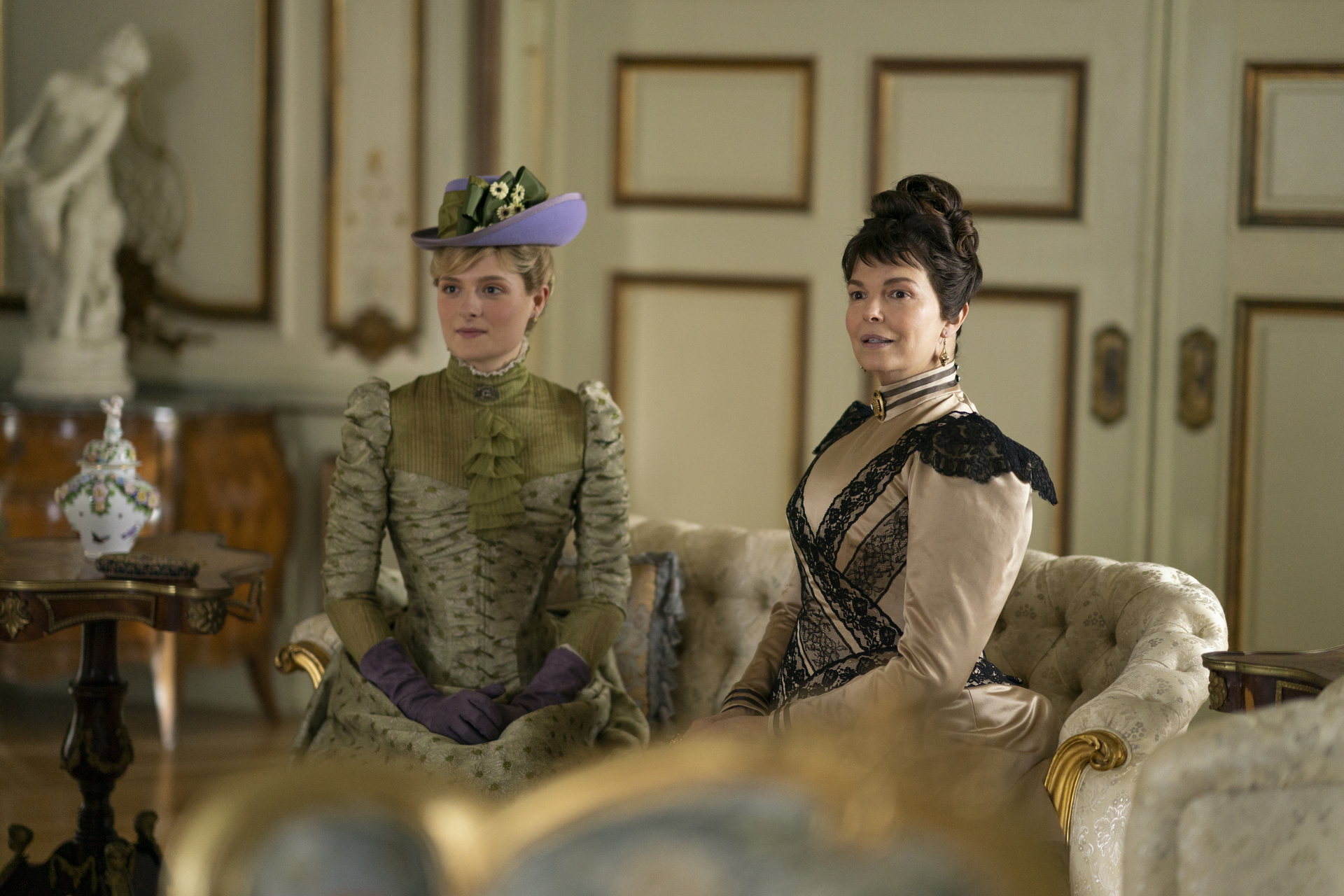
George seems less certain, as Dixon (his accuser) has paperwork proving he gave the order. While the railroad tycoon maintains his innocence, he also admits the tone of the memo sounds like him. He also knows as the rich man he will be painted as the villain and prison is a possibility. Even with this hanging over his head, it is still business as usual.
The latest updates, reviews and unmissable series to watch and more!
The Russell child going against their parent's wishes this week is Larry (Harry Richardson). For once, Gladys is not the issue, as striking up a friendship with Carrie Astor (Amy Forsyth) has opened up her world and led to her big society debut turning from a pipedream into a reality.
Unfortunately for George, Larry doesn’t want to follow in his footsteps and would rather pursue a career in architecture. His father outright dismisses this fanciful notion but is more receptive when Larry makes a strong case for himself later in the episode. He will never be as successful as George in the same field, however, he could become a great architect.
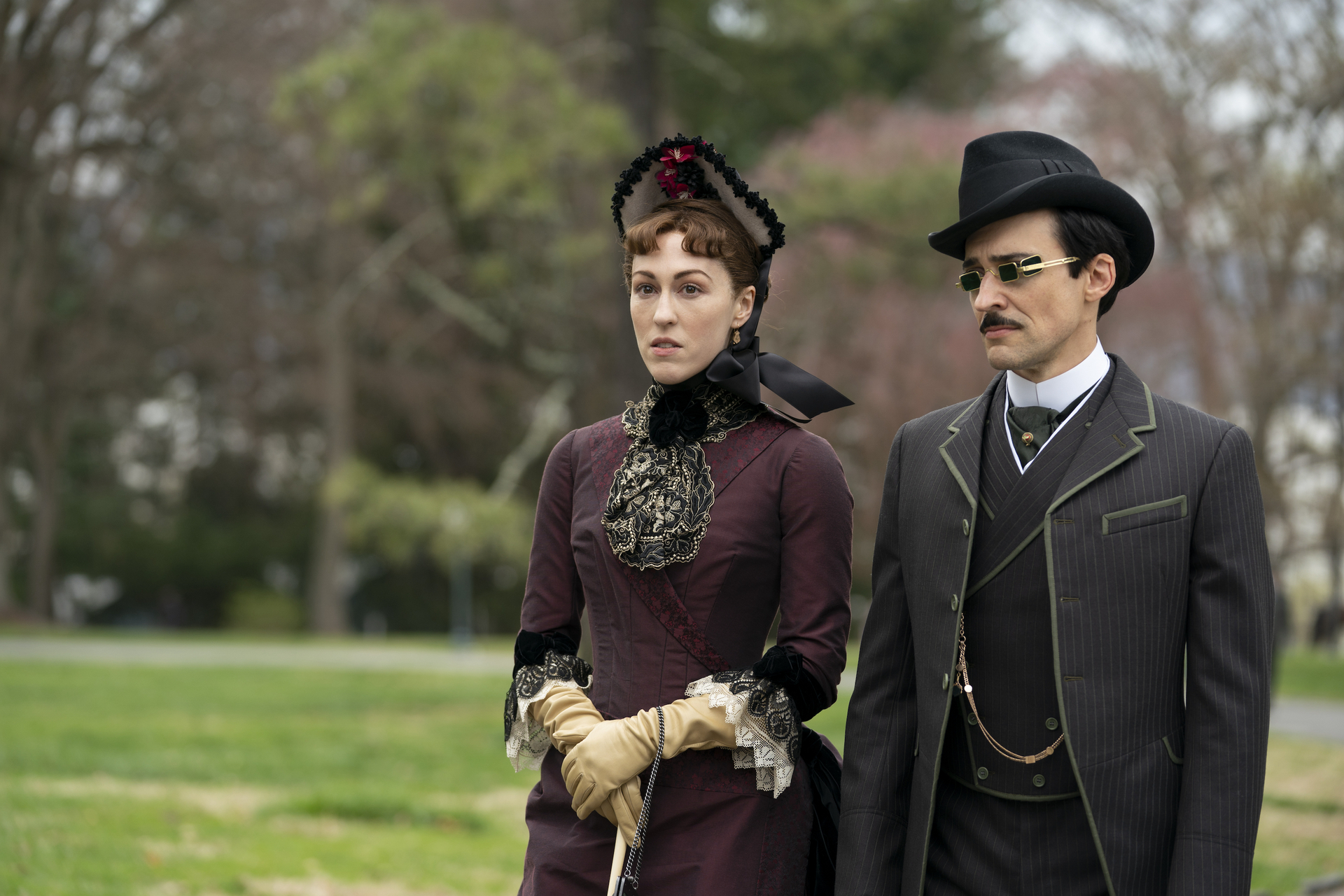
Larry’s other issue is one he isn’t even aware of, as his mother thinks he is having an affair with her maid Turner (Kelley Curran). Bertha mistakenly comes to this conclusion because Marian (Louisa Jacobson) did not name the person believed to be sleeping with her maid. It is like a game of telephone, only less accurate, as Aunt Agnes (Christine Baranski) sent Marian to ask Bertha to fire the maid who touched Oscar van Rhijn (Blake Ritson) on the arm. This scandalous gesture is a sign the two have been intimate, but in reality, the pair are scheming so Oscar can woo Gladys — and he has the perfect pair of sunglasses to conduct all business in.
There are a lot of crossed wires and assumptions, which includes Turner’s previous naked nighttime visit to George’s chamber. George gets a panicked look on his face when his wife mentions a possible tryst involving her maid. Turner isn’t sleeping with anyone but gets fired nevertheless and her parting gift is to repeat her offer to George (he isn’t interested). She also informs Bannister (Simon Jones) that rival butler Church (Jack Gilpin) is the person who told Agnes he was moonlighting for the enemy. Turner has been a consistent antagonist and her villainy has lacked any nuance, but her withering comments will be missed.
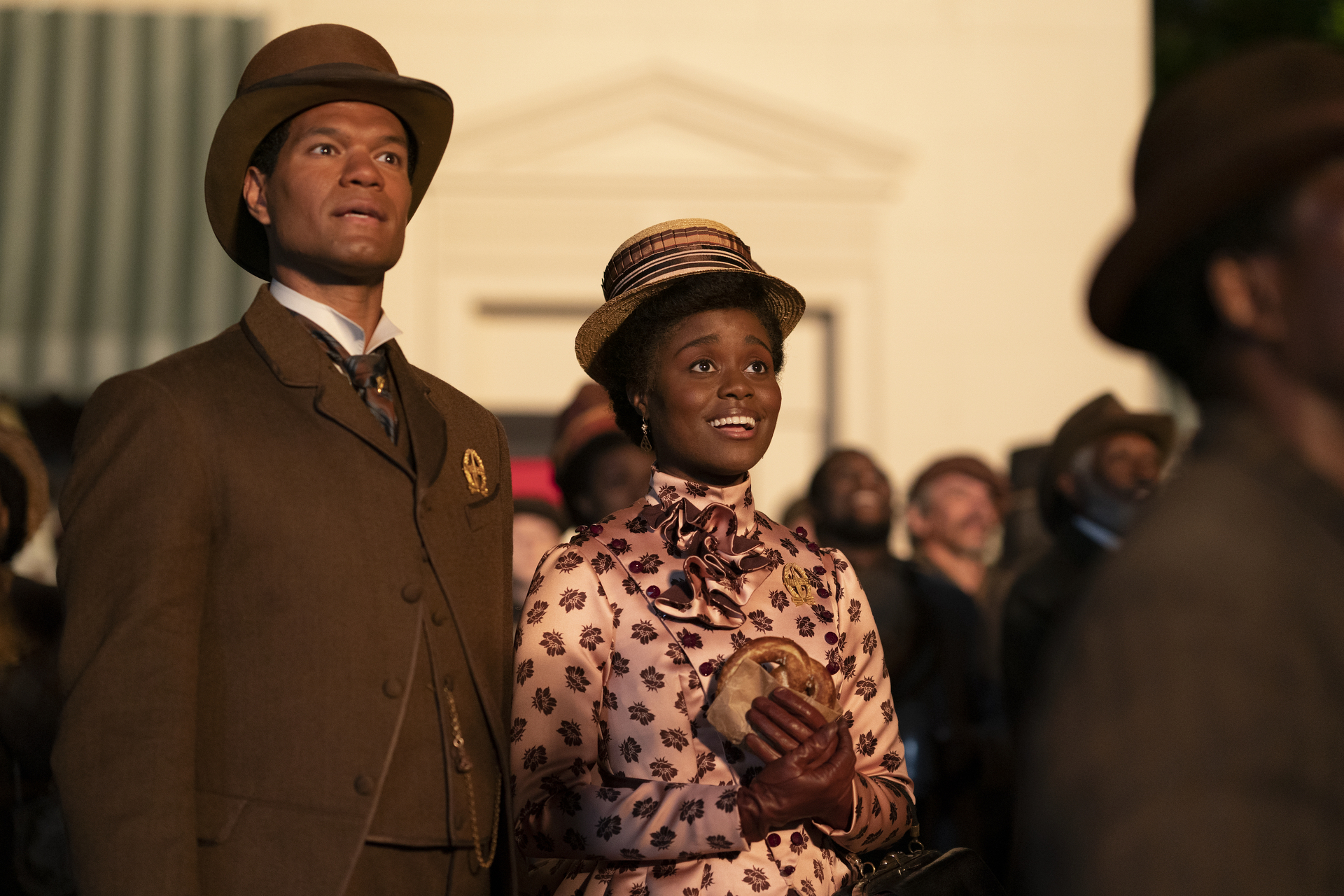
One secret love affair having more success is between Marian and Mr. Raikes (Thomas Cocquerel). They have a rendezvous at Mrs. Chamberlain’s (Jeanne Tripplehorn) home, in which they get to enjoy the art and each other. Sadly, the Degas statue is more captivating than this forbidden match and in an episode full of actual electricity this duo continues to fizzle.
A potentially significant moment comes during the picnic (that Marian has not been invited to because there wasn’t enough space) as Mr. Raikes flirts it up with another woman — maybe Aunt Agnes was right about his intentions after all.
Marian is stuck at home, but Peggy (Denée Benton) attends the Edison demonstration in her capacity as a reporter with her editor. One name mentioned is Black electrical pioneer Lewis Howard Latimer, whose durable lightbulb filament was a significant step in this process, speaking to the nature of who gets remembered for their game-changing inventions.
"Historic and futuristic all at the same time," is Peggy’s response to the assignment she has been given, and while a lot of the episode is retreading old ground it is in these scenes at the newspaper and out in the field that The Gilded Age offers an illuminating narrative.
Emma Fraser spends most of her time writing about TV, fashion, and costume design; Dana Scully is the reason she loves a pantsuit. Words can also be found at Vulture, Elle, Primetimer, Collider, Little White Lies, Observer, and Girls on Tops. Emma has a Master’s in Film and Television, started a (defunct) blog that mainly focused on Mad Men in 2010, and has been getting paid to write about TV since 2015. It goes back way further as she got her big start making observations in her diary about My So-Called Life’s Angela Chase (and her style) at 14.
